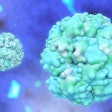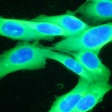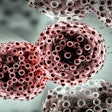
Knowledge of how circadian rhythms affect cellular functions involved in the formation and progression of tumors could improve cancer treatment, according to a study published in Trends in Cell Biology.
The review paper describes the current evidence linking circadian rhythms to cancer. While best known for their role in regulating the sleep–wake cycle, the 24-hour circadian rhythm cycles affect most tissues and organs and are implicated in other aspects of human health. There is now a body of evidence that implicates the biological clocks in tumor formation and metastasis.
Zoi Diamantopoulou, Ana Gvozdenovic, and Nicola Aceto, the ETH Zurich molecular oncologists who wrote the review, explain how “the circadian rhythm governs most of the cellular functions implicated in cancer progression, and therefore its exploitation opens new promising directions in the fight against metastasis.”
Circadian rhythms synchronize biological processes such as gene expression, immune function and cell repair. People who have chronically disrupted circadian rhythms, for example because they have erratic sleep patterns, are predisposed to health problems, including cancer.
More recently, researchers including Diamantopoulou and Aceto have linked the rhythms to the spread of cancer cells from the primary sites to new locations in the body. Metastases are associated with worse health outcomes, making knowledge about how cancer spreads -- and by extension how the process can be stopped -- particularly valuable.
As the review explains, the rate at which cancer cells break away from the primary tumor and enter the bloodstream oscillates rhythmically throughout the day. The rhythm differs between tumor types, with breast cancer cells more likely to spread at nighttime and prostate cancer prone to metastasize at other times.
Diamantopoulou and Aceto contributed to knowledge of the processes last year, co-authoring a paper in Nature that analyzed the generation of circulating tumor cells (CTCs) in patients with breast cancer and in mouse models. The analysis found “a striking and unexpected pattern.” CTCs were more likely to move through vessel walls during sleep, and, unlike daytime CTCs, the cells were highly prone to metastasize. Single-cell RNA sequencing revealed the genetic upregulation responsible for the metastatic potential.
In the review, the authors frame the research as evidence in support of chronotherapy, the delivery of chemo- and immunotherapy at specific times of day. Data in support of the practice comes from a paper in Lancet Oncology, which reported the results of a clinical trial that found that administering immune checkpoint inhibitors after 4:30 p.m. improved overall survival.



















